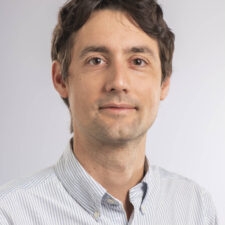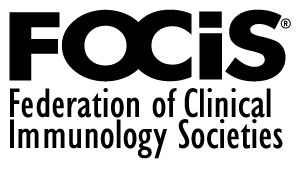Assistant Professor, University of Lausanne
Lausanne, Switzerland
About Yannick Muller, MD, PhD

Career path
1. How did you first get involved in immunology?
During my medical studies, I would say very early on, I was interested in the field of transplantation. I was always fascinated by this idea that you can live with an organ from someone else that is not yours. I think, really intuitively, it just brings you back to a very fundamental notion in immunology. That is, what is the self and the non-self, and how our own body can make the difference, and maybe how you can manipulate this. Secondly, I would also say that when you make a transplant, it requires a network of specialists, including a coordination team, surgeon, you need a transplant specialist who can be, for example, a nephrologist, gastroenterologist, cardiologist or pulmonologist. You need an immunologist to assess the histocompatibility between the recipient and the donor. You also have experts from infectious diseases. So ultimately, this is really a big team working together. This is also what, I believe, immunology is right now. It’s all about working together with so many different specialists and specialty teams. So, yes, transplantation, that’s how I got started in immunology.
2. Tell us about the research you’re most proud of.
I’m a young researcher still, so I hope I will be proud of much more research to come. Going back to my MD, PhD, I joined the lab with expertise on islet transplantation. Islet transplantation relies on having diabetic mice. For inducing diabetes, the most widely used diabetes agent is a glucose analog named streptozotocin. Streptozotocin targets insulin producing cells (or the beta cells) in the islets. When I joined the lab, my first task was to compare different immunosuppressive protocols and evaluate their impact in a rat-to-mouse islet transplantation model. And at the end of the day, I just realized that the mice that were injected with streptozotocin are, per se, already immunosuppressed. These mice are in fact lymphopenic and in this lymphopenic environment, you can observe an expansion of regulatory T cells. I think this an important bias for evaluating new drugs which many people are not aware of.
3. What is the most important trait a researcher should possess and why?
You need to be curious. You need also to challenge established dogma and maybe more importantly, you need to be highly reliable. This is the important trio of things you need to be good at.
4. What is the biggest lesson you’ve learned?
A very important lesson in research is one I learned from my former PI, Qizhi Tang. Try not to be too focused on your idea or conclusion as you may miss the elephant. We just need to be very critical with our own findings and somehow be our own reviewer at all times.
5. What advice would you give to young researchers just starting out in the field?
Research is fun. It must be fun as you are not going to make a lot of money. You should try to make good science, and not just go for the publication. And I think this is a very subtle difference but an important one. You must be very competitive, but in the right way.
6. Describe your average workday.
Every day is different. It’s about running several jobs at the same time. First, you have the research. My team is currently expanding. You have to find the money, design experiments, put people together. Then you have clinical duties, taking care of patients, but also supervising the trainees. You also need to build the clinic, make it better organized, more efficient. You also have COVID, and this mass vaccination program. This requires a lot of clinical research as there’s a lot to be learned and understood. You have then the education of local master students and medical students that you have to follow up with – even some foreign students through international masters or exchange programs. Every day it’s quite different and there’s a lot of tasks and many things to do.
Work with FOCIS and FCE's
8. Switching gears, how did you first get involved with FOCIS?
I spent three years at UCSF. I was a postdoc in the laboratory of Qizhi Tang. I’m very grateful to her but also to all the community there. I learned so much also at UCSF and FOCIS was the Congress. I went there three years in a row.
9. How do you think FOCIS has changed your world?
I would say FOCIS is all about bringing together scientific and clinicians. It’s about interdisciplinarity, better understanding immunology dysfunction, but also about developing new therapies. This is exactly what is fitting my interest.
10. If your colleague asked you why they should join FOCIS, what would you tell them?
I would tell them it’s great people, great network, great talks, great presentations, great meetings. If you like translational immunology, you have to go there.
11. We’re going to talk a little bit now about your FCE. Can you tell us about the research that you’re doing?
We are working on cell therapies and the focus is how to induce or restore tolerance in autoimmune and allergic diseases. I’m really interested in reprogramming regulatory T cells using CRISPR technology. The basic workflow in the lab is trying to characterize the TCR and BCR repertoire of patients with autoimmune disease or allergies. From there, you can try to engineer and validate new chimeric antigen receptors or engineer regulatory T cells with novel T cell receptors. Ultimately, I aim to develop phase 1/2 clinical trials with innovating drugs and approaches to better treat our patients.
12. What is the vision/your dream goal of your FCE?
The Center for Immunology at Lausanne is a very new center. It was created as a common initiative between eleven clinical divisions to reinforce the translational immunology knowledge and bring clinician and scientific together. Joining now, as a new FCE, is just a tremendous opportunity for this center to be included in an international network that shares basically the same vision. It’s a bit like going from a microenvironment to a macroenvironment. This is really a win-win situation where we can benefit from the network of the different FCEs. At the same time, I hope we can provide some specific expertise and bring opportunities to other FCEs, such as, for example, getting access to clinical data/samples from Swiss cohort studies. The CHUV/UNIL is the first FCE now in Switzerland. I hope we can, in the future, also recruit other FCE centers in Switzerland.
13. What are your biggest challenges?
This is all about finding time, finding money, putting motivated people together.
14. Why did you apply to be an FCE?
I think it is a great opportunity for our institution to be represented as a cutting-edge center for translational immunology. I applied to be connected, to stay tuned, but also to make a sure I have no excuse for missing any FOCIS meeting.
15. Anything else to add?
No, I’m open-minded, so please don’t hesitate to reach me if you have any questions or interests and I’m happy to share my expertise and see in what manner I can be helpful, especially for bringing new projects together. I think this is something I’m really looking forward to as a new FCE director.
Those are all the questions for today, thank you for your time.
